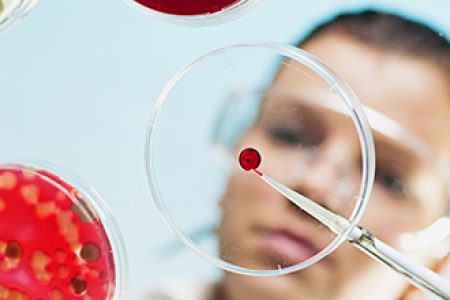Psychology and genetic engineering - part 1
This summer I will spend my time modifying bacteria in the lab, an unusual activity for a psychology student. But this is only a small part of iGEM. Curious how a psychologist adds something to a synthetic biology contest? Read my blog!
iGEM
When I heard of iGEM for the first time, I had literally no idea what it was. “A worldwide competition about biotechnology, genetic modification and bacteria”, things I was not involved in so far. However, something triggered me. Thus, I took the plunge, wrote a motivation letter and to my great surprise I was selected for the team. A month later I entered the world of the biotechnology. Now, you are probably wondering what can a psychologist add in a project about biotechnology and genetic engineering? Well, I wondered the same. However, soon I discovered that iGEM was so much more than only lab work. We have to do our own fundraising, promotion, create a website, visit events and think about ethics. This lasting thing, ethics, is where my focus will be. Because we are in a new generation, where biotechnology can do crazy things, both positive and negative, ethics is an important factor to think about. This year iGEM Leiden will create a new method to discover antibiotics. And in this blog I will explain my experiences as a psychologist in this awesome new biotech project.
First, let me explain a little more about iGEM. iGEM is a worldwide competition in synthetic biology. There are 340 competing teams from all around the world. Each of them will tackle a major societal problem, such as climate change, water pollution, food shortage and so forth. Eventually, all teams present their work at a giant conference in Boston. As mentioned, we are going to create a new method to discover antibiotics. Globally, many people die as a result of antibiotic resistance. In Europe alone, around 25.000 people die annually due to antibiotic resistance, and the expectation is this number will increase greatly. Antibiotic resistance results from overuse of antibiotics in for example food for animals, causing it to end up in the meat we eat and the environment. Because of this, bacteria are constantly being exposed to these antibiotics, allowing them to get used to them and become resistant. This means that when you are infected by one of these bacteria, antibiotic will not always heal it. Now, you may think, why can’t you just prescribe a different antibiotic. Well, that is what doctors do nowadays, however, there is only a limited number of different antibiotics. Researchers are looking for new antibiotics, but, for the last three decades no new antibiotics have been found. Therefore, we are going to try to create a new method of finding new antibiotics to hopefully eventually save many lives (and win the competition)!
Honours College Beta & Life Sciences
But who are “we” and how is a group of students going to do this? We are a team of 13 bachelor and a few master students, and the majority, including myself, take part in the Honours College Beta & Life Sciences. The team is quite diverse and consists of biologists, chemists, biomedical students, biopharmaceutical students and a psychologist (that’s me). As mentioned, I will be responsible for considering the ethics of our project, and therefore the human practices. This is a great part of iGEM because you have to think about the consequences your project will have on society. As mentioned, biotechnology is in such development that people can start doing amazing stuff. Think about genetic manipulation of the human DNA or growing a human heart in a pig. With these crazy projects in mind you have to think about the ethics. How far should we go? Is it okay to change the DNA of an embryo to prevent a heritable heart disease? Most people will probably answer yes. But is it okay to adjust DNA to create better cognitive or sport skills? These are questions biotechnology faces these days.
In our antibiotic resistance project, the questions are perhaps not that intense, but there is a lot to consider. And besides thinking about ethics, human practices includes examining the laws and regulations around genetic modification of bacteria, gathering opinions of the public, talking to experts about the biological techniques we are going to use and thinking about marketing. At this point I am mostly busy with contacting experts who can advise us in our project. Though we are a group of smart crazy students, all the feedback we can get is welcome.
Last week I had my first lab experience where I got an explanation and tour through the offices, cold rooms - where the bacteria are - and the lab itself. I felt quite inexperienced and when looking for a lighter, I held up a pipette. Whoops… Anyway, I still have a lot to learn but I am really looking forward to having this new experience and I see it as a major challenge.
Thank you for reading my first blog. In the summer I will write more about how my lab experiences are going!
Read more about iGem: Fifty Shades of Stress





